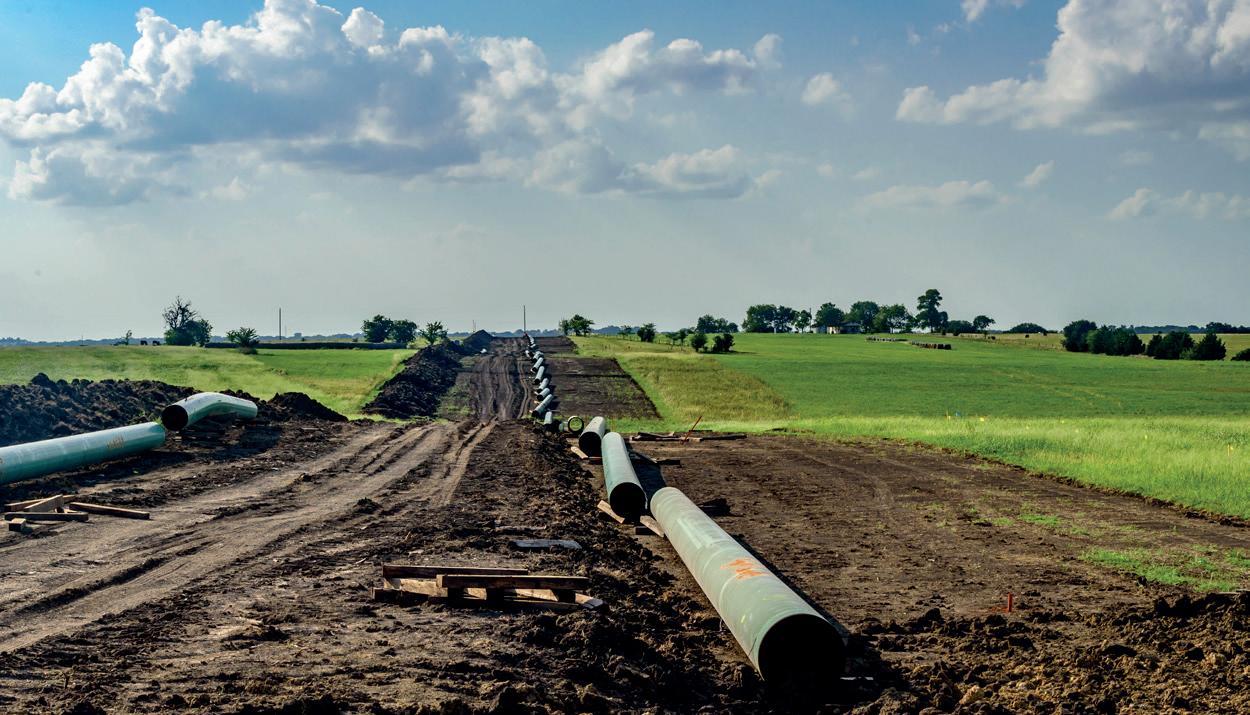
3 minute read
Guest comment

Bob Chalker Chief Executive Officer of the Association for Materials Protection and Performance (AMPP)
Corrosion is the predominant global threat to the integrity of pipelines that transmit dry gas, wet gas, crude oil and processed liquids. Oil and natural gas pipeline failures can cause injury, loss of life and significant harm to the environment.
According to a 2021 Pipeline Maintenance Services Market Report by Mordor Intelligence, corrosion control represents the largest percentage of a pipeline’s operational and maintenance costs worldwide. Over the next five years, stakeholders in the North Sea and Gulf of Mexico regions are expected to decommission and abandon a significant volume of pipelines. Within 30 years, the report estimates, more than 470 pipelines in the North Sea will require partial or complete removal, suggesting corrosion control services are vital to global pipeline safety and reliability.
To prevent the corrosion of natural gas, crude oil and processed liquid pipelines, companies pursue two principal approaches. They can apply protective coating systems to the pipe, and they can also implement cathodic protection, an electrochemical means of preventing and controlling corrosion.
Stakeholders who protect our global pipeline infrastructure using these approaches frequently depend on experts from the Association for Materials Protection and Performance (AMPP). AMPP’s membership includes global technical experts with experience developing and applying the most up-to-date corrosion prevention and control methods. One of AMPP’s key priorities is to help businesses and governments worldwide to create a proactive approach to corrosion control through corrosion management programmes.
Born from a merger between NACE International and SSPC in January 2021, AMPP has combined, within one global nonprofit organisation, 145 years of historical expertise in corrosion control and protective coatings, industry training, new standards development, and forums for exchanging best practices in corrosion control and management.
US policymakers tend to agree that America’s infrastructure needs more government investment and a greater emphasis on repair and maintenance. This year, AMPP’s legislative experts have been working to ensure that the bipartisan infrastructure legislation (now pending) prioritises corrosion control planning in all federally funded projects where corrosion threatens the long-term viability of an asset. The outcome of this legislation stands to serve as a template for AMPP’s public policy efforts worldwide. In addition to implementing optimal coatings and cathodic protection technologies, energy companies are beginning to realise the benefits of long-term corrosion ENERGY COMPANIES control planning, guided by strong communication between
ARE BEGINNING corrosion professionals and senior management. AMPP has
TO REALISE THE created a suite of tools and examples, known as IMPACT BENEFITS OF LONG- PLUS, to help pipeline companies translate their TERM CORROSION coatings and corrosion control practices into the language of
CONTROL their broader organisations. Practicing corrosion
PLANNING management to achieve pipeline integrity encompasses all activities that are performed through a structure’s lifetime to prevent corrosion, repair damage, and replace the asset itself. Through its presence in 130 countries, AMPP provides services to 40 000 members in the areas of certification, accreditation, membership, advocacy and public affairs, standards, technical and research activities, conferences, events, education, training, publications and pre-professional programming. While AMPP’s coatings experts plan to meet this December at the Coatings+ Conference, the association’s full global membership will convene in San Antonio next March for the inaugural AMPP Annual Conference + Expo 2022. The entire AMPP community is committed to providing pipeline stakeholders with management and technical expertise necessary to integrate corrosion management practices into all levels of their organisations. The health and longevity of our global pipeline infrastructure depend on it.




Global coverage of the downstream oil and gas sector









